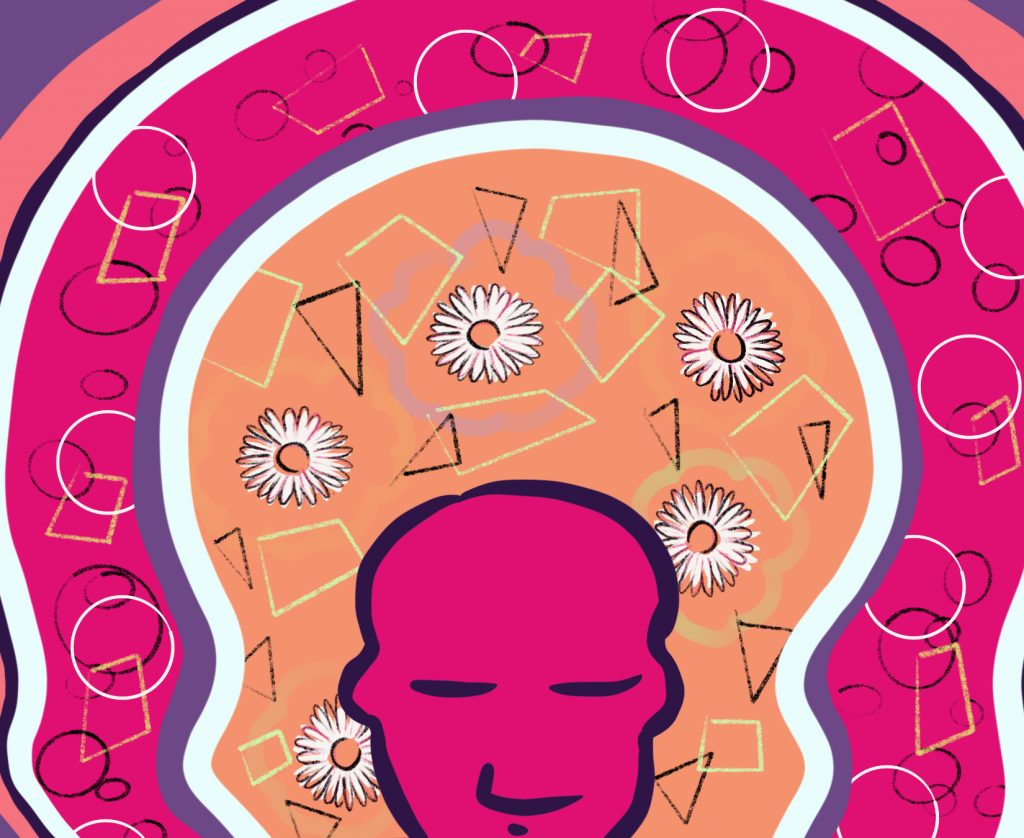This holiday season, instead of celebrating with marijuana on 4/20, take some LSD in honor of Bicycle Day on 4/19 — the first-ever trip on LSD. The chemist who first synthesized lysergic acid diethylamide, Albert Hofmann, tested LSD on himself on April 19, 1943 in his lab, intentionally taking 250 micrograms (a strong dose) of the substance. He first felt the effects while bicycling home, hence the name of the day.
Psychedelics, meaning “mind-manifesting,” have been used by humans as tools to communicate with the divine and explore the mind for thousands of years. Examples include psilocybin mushrooms, the peyote cactus, ibogaine and most recently, LSD and MDMA, but I’ll be focusing on LSD and psilocybin. Known for his work with LSD and alcoholism in the 1950s, Humphrey Osmond coined the term “psychedelics” when he said “to fathom hell or soar angelic, just take a pinch of psychedelic.”
Only recently were they picked up by the West. In 1955, Robert Gordon Wasson tried psilocybin mushrooms while in Mexico and spread the word of their use, and Hofmann accidentally ingested LSD-25 in 1943. However, psilocybin mushrooms and peyote have been used for thousands of years by Mexicans and Native Americans for spiritual purposes. The Spanish colonists, the good Christians they were, saw the “flesh of the gods” — what Aztecs called mushrooms — as a threat to Christianity and suppressed their use.
LSD enjoyed widespread use among the psychiatric community from the 1940s to the 1960s, until sensationalist journalists and ignorant lawmakers brought its research to an end. Since the 2000s, however, Johns Hopkins University and other institutions began the second age of psychedelic research, with Johns Hopkins looking at how psilocybin facilitates mystical experiences.
I believe that psychedelics are the safest and most fascinating class of drugs there are. Almost impossible to overdose with and classified as nonaddictive, their adverse effects are relatively mild: rise in heart rate, increased blood pressure and dilated pupils.
LSD is known for its ability to dissolve reality and the ego like an acid. The ego has a firm grip on our identity, but what are we without it? Once the ego is silenced, the transpersonal self is allowed to flourish. This self stresses an interpersonal connection with others and nature, the polar opposite of our materialistic and individualistic society. Our societal elders have bred us in ultra-competitive high schools and colleges. Older generations have prioritized overconsumption and pollution instead of thinking of our planet’s future. Maybe it would be beneficial for heads of state and industry leaders to take some LSD and have their selfish desires dissolved.
Psychedelics give the unique ability to explore one’s mind and spirituality, all without losing clarity of thought. Unlike other popular inebriates like alcohol and marijuana, the entire trip is remembered, without blacking out or experiencing short-term memory loss. Nor are the senses dulled in any way, but enhanced. Studies in London have shown the brain on psychedelics is similar to the brain of a young child. Filled with wonder, everything is seen with a new perspective.
The term “recreational drugs” is often looked down upon, but what is so wrong about recreating oneself? The government wants our culture to stay the same; change was not welcome in the ’60s with the rise of pacifism, anti-war protests, environmentalism, feminism, civil rights movements, secularism and drug use. Even today, there is a stigma surrounding psychedelics, fueled by ridiculous myths created by the government and other organizations. I remember freshman year, during some orientation, when we were shown a video of someone tripping on mushrooms that gained a sudden urge to jump out the window and die. If that doesn’t set off the bullshit detector, I don’t know what will. Nor does LSD make you crazy. It has been known to bring out schizophrenic tendencies if one has a family history of mental illness, but psychedelics are never the cause.
We are always getting ready to live, distracting ourselves with technology and ease. Phones are favored over human interaction and nature. Yet psychedelics force us to live in the moment, confronted with the imperfections and joys of human consciousness. Explore your mind and see what you find.
Nicholas Walker is a junior majoring in biomedical engineering.



